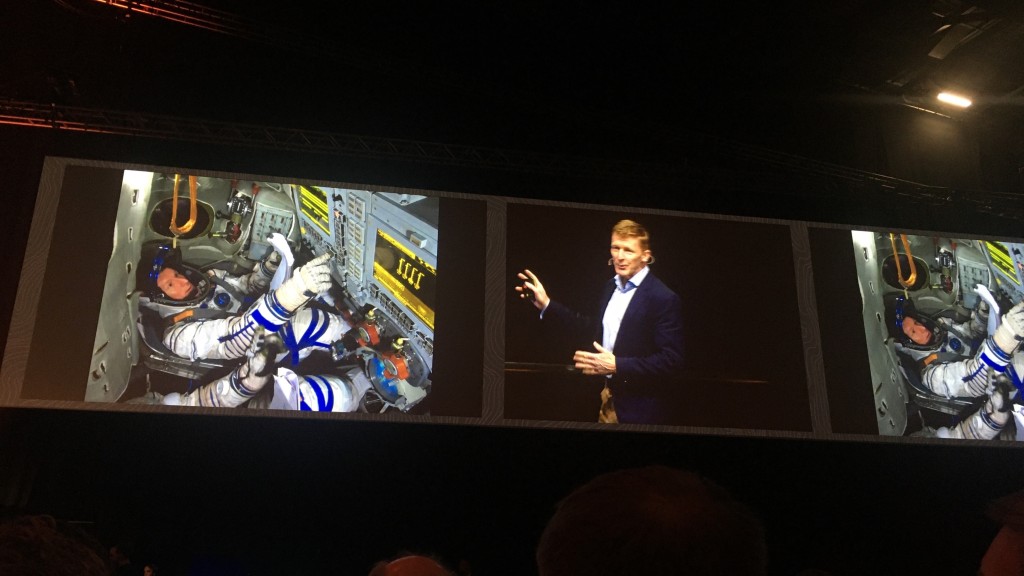The Oracle OpenWorld Europe 2020 Conference, held from 12-13 February at London’s Excel Centre, allowed business and tech leaders to demonstrate their innovations and future predictions for the tech industry. The conference covered a range of tech from databases to IoT, blockchain, and virtual and augmented realities. All topics were underpinned by an emphasis on cloud and AI technologies and how we can use them to enhance productivity, reduce costs, and improve controls.
Safra Katz, CEO of Oracle, set the tone in her opening keynote stating that cloud systems of the twenty-first century collect and analyse data to help people work less but better. This was illustrated by Simcha Shore, the founder and CEO of AgroScout. AgroScout’s challenge is to reduce the percentage of crops lost to disease and pests (20-40%). To address this challenge, it uses cloud tech for farmers to upload images of crops taken via drone. By utilising machine learning, AgroScout uses this image database to identify early signs of disease and pests affecting crops – allowing farmers to save time checking crops manually and pre-emptively taking precautions to minimise damage and maximise yields.
Another interesting use of cloud technology shown was the World Bee Project, which uses IoT sensors and other metrics to upload data of beehive health. The aim is to create a Global Hive Network to allow researchers and conservationists to better understand why some beehives thrive and others do not. Examples like the World Bee Project and AgroScout show the clouds unique versatility which coupled with new emerging technologies, like machine learning, will mean we’ll continue to see its rapid adoption across different industries.
AI was another big theme at the conference. Day two began with a keynote talk from PwC’s Director of AI, Rob McCargow. His key message? We need to ignore both those who hype up and are pessimistic about AI. While he pointed to some of PwC’s research highlighting the impact of AI on employment – for example, 30% of jobs have a high risk of displacement by 2030 and 53% of workers believe automation will change their jobs significantly or make them obsolete in the next ten years – he was cautiously optimistic, pointing out that 77% of adults stated they would be open to learning new skills and retraining to improve their employability. McCargow also highlighted some of the benefits of AI. It will add USD 15.7 trillion to the world economy by 2030, improve diagnostics, and create more personalised education. His main concern was what he called the ‘Pillars of AI fairness’. These are ethical issues such as bias and fairness, explainability and interpretability, and security and appropriate governance.
In a pre-keynote interview with Javed Mohammed, McCargow stated that to uphold these pillars, businesses need to ask themselves a few questions. Just because you can, does that mean you should? Are you using the right tech? Are you trying to solve the right problem? Have you got a diverse range of people?
He finished his keynote stating that while the advancements in technology seem unrelenting, by addressing these issues we can build technology that works and is representative of all parts of society, has our and our planet’s interests at heart, and incentivises people to solve problems. Ultimately, this will be the challenge of both businesses and regulators looking forward to 2030 and beyond.
Concluding the conference was British Astronaut Tim Peake. He discussed what for many is the end game of technology and engineering, space. Alongside examining the tech involved in the launch of manned rockets and the day to day running of the International Space Station – from AI to VR and solar to robotics – Peake highlighted the importance of, and often overlooked, interpersonal and soft skills that are necessary to be an astronaut.
His advice for young people looking to pursue a similar career as him? Study STEM subjects and languages, but don’t forget to develop yourself and pursue your interests. Being human in an age defined by technology has never been more important.
Author: Matt Howard, Access Partnership





